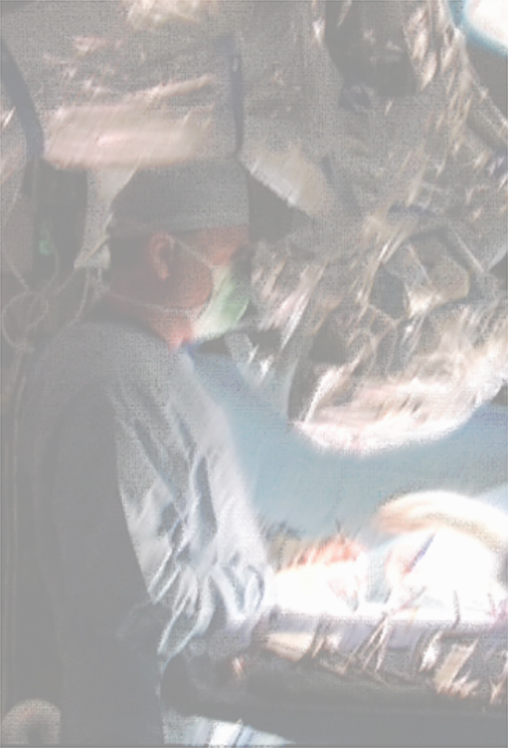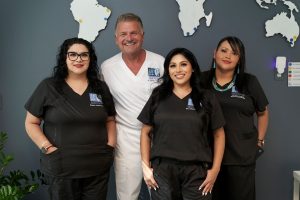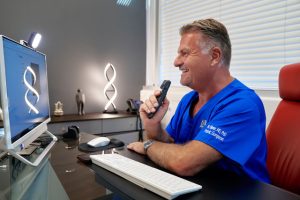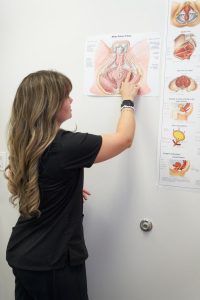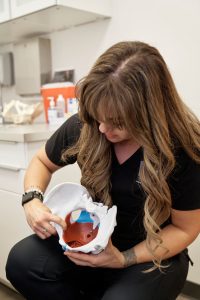
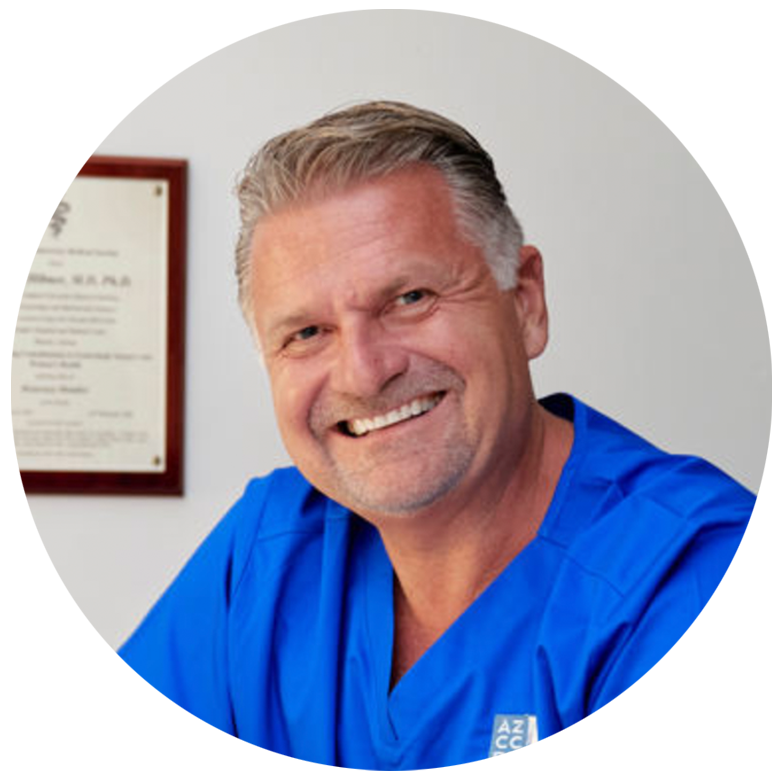
Michael Hibner, MD, PhD
Pelvic Surgeon


Dru Nuñez, RMA
Practice Manager

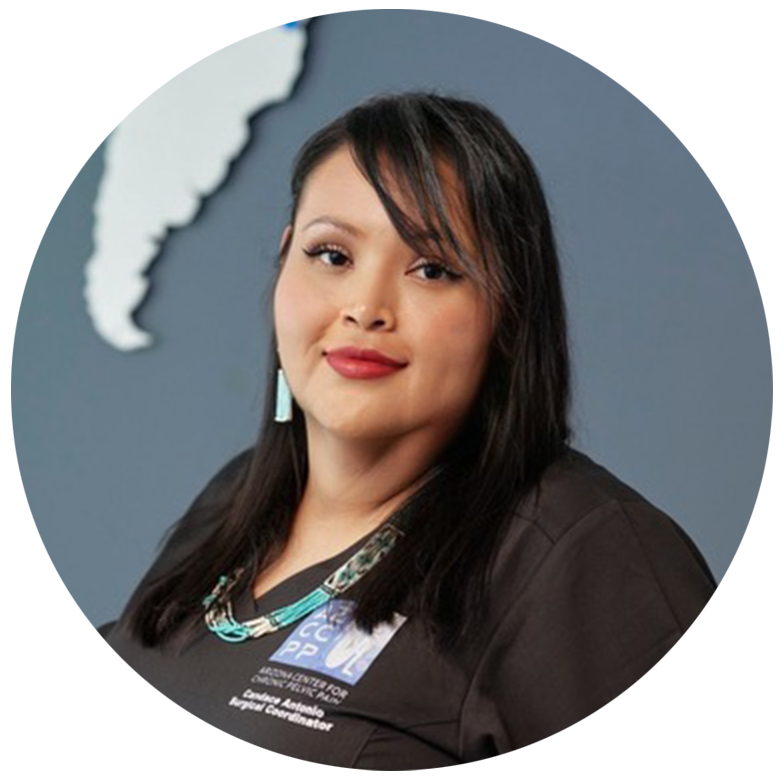
Candace Antonio
Surgical Scheduler (M-Z)
and Receptionist

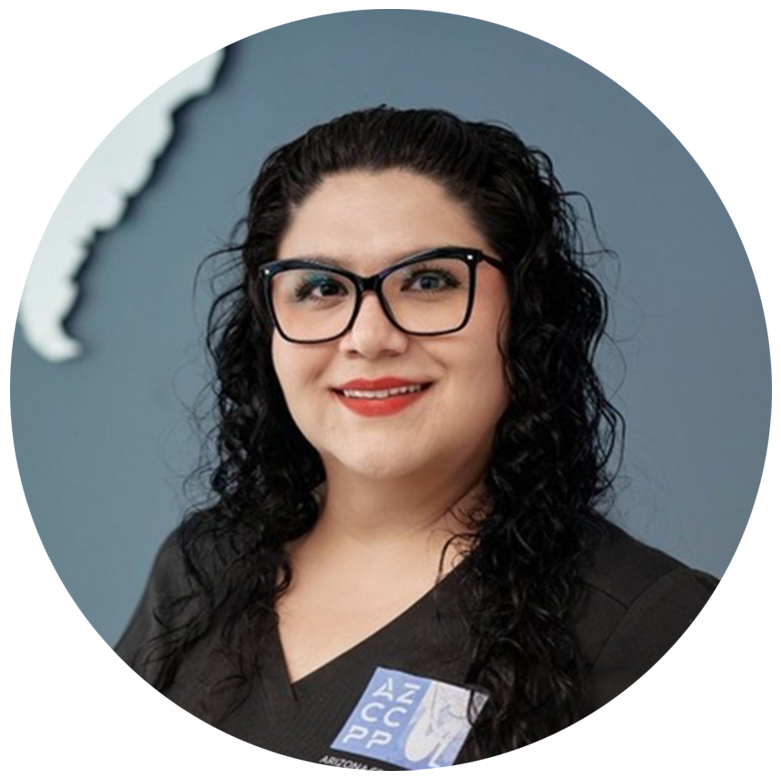
Maggie Robles, RMA
Surgical Scheduler (A-L)
and Medical Assistant
About
Dr. Michael Hibner
Michael Hibner was born in Warsaw, Poland, in an academic family but, interestingly, grew up in Nigeria, where his parents relocated for work. He returned to Poland to attend the Medical University of Warsaw, the medical school whose alumni included his mother and other family members.
In 1994, Dr. Hibner moved to the United States and began a residency in Obstetrics and Gynecology at the famed Cook County Hospital in Chicago. While in residency, he also studied for a Ph.D. degree in bioengineering, later awarded to him by his Alma Mater. After completing the residency, Dr. Hibner moved to Arizona to attend a three-year fellowship in Urogynecology and Reconstructive Pelvic Surgery at the Mayo Clinic in Scottsdale. At Mayo, he trained under the world-renowned gynecologic surgeon Dr. Javier Magrina in advanced and minimally invasive surgical techniques. At the time of his training, Mayo Clinic had one of the very first da Vinci robots. Dr. Hibner was among the first to be trained on this groundbreaking equipment, immediately placing him at the forefront of robotic gynecologic surgery.
After graduating from the fellowship in 2003, Dr. Hibner briefly worked at Maricopa County Medical Center. A year later moved to St. Joseph’s Hospital and Medical Center in Phoenix to become director of the Division of Gynecologic Surgery. At that time, Dr. Hibner became especially interested in treating patients with pelvic pain and established the Arizona Center for Chronic Pelvic Pain at St. Joseph Hospital. Dr. Hibner was treating women with advanced endometriosis from the Southwest and beyond there. However, some patients had symptoms inconsistent with such well-known pelvic conditions.
By researching medical literature, Dr. Hibner focused on the condition of pudendal neuralgia and reached out to one of the pioneers in the field, French neurosurgeon Professor Roger Robert. In the summer of 2005, Dr. Hibner went to Nantes, France, to learn from Professor Robert. After returning to Phoenix, he started treating women and men with pudendal neuralgia caused by pudendal nerve entrapment. At that time, very few other physicians were treating patients for pudendal pain. Subsequently, Dr. Hibner also traveled to Austria to train under another pioneer of pudendal nerve surgery, Dr. Oskar Aszmann. Hibner then expanded his pudendal neuralgia practice at St. Joseph’s, and female and male patients worldwide began arriving in Phoenix for diagnosis, treatment, and surgery. At the same time, Dr. Hibner continued to see and treat many patients with advanced stages of endometriosis and other causes of pain. He became a remarkably busy da Vinci robotic surgeon and soon performed more robotic procedures than any other surgeon in the US in any specialty.
In fact, in those days, Dr. Hibner proctored and trained many surgeons of different specialties in Arizona. With time, a new category of patients has begun presenting with pain after placement of pelvic mesh for pelvic prolapse or urinary incontinence. Dr. Hibner was uniquely positioned to treat these patients because of his triple board certification in Obstetrics and Gynecology, Urogynecology, and Minimally Invasive Gynecologic Surgery, as well as his knowledge of pelvic nerve injuries. Over the years, Dr. Hibner has seen thousands of patients with pelvic pain, advanced endometriosis (including endometriosis outside the pelvis), interstitial cystitis, spastic pelvic floor syndrome, pelvic congestion syndrome, ovarian remnant, severe intraabdominal adhesions, pudendal neuralgia, pudendal nerve entrapment, obturator and other pelvic nerve entrapment and mesh injuries. He has performed several thousand da Vinci robotic procedures, more than 350 decompressions of pudendal nerve, as well as hundreds of mesh removal procedures. He has also developed modifications to many surgeries that are performed today. Pudendal nerve decompression surgery and groin mesh removal were the most significant modifications. He was also the first to describe some of the novel ultrasound-guided pelvic nerve blocks. Dr. Hibner concentrates mainly on patients with pelvic pain but also performs gynecologic surgeries for conditions other than pain. Some of them include uterine fibroids, ovarian cysts, and neovagina procedures. He also performs many vaginal hysterectomies, even for patients with huge uterine fibroids, avoiding visible incisions. Under his leadership in 2018, the Division of Gynecology at St. Joseph’s Hospital was named in the top 20 by US News and World Report.
Hibner is a Professor of Obstetrics and Gynecology at Creighton University School of Medicine, Associate Professor of Obstetrics and Gynecology at the University of Arizona College of Medicine, Assistant Professor of Obstetrics and Gynecology at Mayo Clinic College of Medicine and Science, and Adjunct Professor of Arizona State University at the College of Health Innovation. He enjoys teaching medical students and exchanging ideas with a younger generation of doctors. Both of Dr. Hibner’s parents were academic teachers, so teaching at a medical school continues a family tradition. Dr. Hibner has also trained Ob/Gyn residents from Phoenix Integrated Residency in Obstetrics and Gynecology (PIROG), part of Creighton Medical School. He has taught numerous gynecologic, laparoscopic, and da Vinci robotic surgery residents. In 2006, Dr. Hibner opened a fellowship in Minimally Invasive Gynecologic Surgery accredited by the American Association of Gynecologic Laparoscopists (AAGL), one of the first in the United States, and has trained 17 advanced surgical specialists in this field.
In 2011, when Hibner realized that education in pelvic pain among physicians was lacking, he petitioned AAGL to start a Special Interest Group (SIG) within the society to promote this knowledge among its members. The SIG was incorporated that year, and he became its first chair, allowing him to elevate the problem of chronic pelvic pain to more significant numbers of physicians. In 2015, Dr. Hibner was voted into the Board of Directors of AAGL, one of the most prestigious gynecologic societies in the world, an organization with almost 7000 members in over 150 countries. He served on the AAGL Board for two years. In October 2023, Dr. Michael Hibner was elected to be the next Secretary-Treasurer of AAGL. This is a position ascending to the presidency of this very prestigious society. When he becomes the president of AAGL in January of 2026, he will be the president of the largest gynecologic surgery societies in the world. Dr. Hibner has also served for eight years on the Board of Directors of the International Pelvic Pain Society (IPPS). He is an author and reviewer of articles in multiple international journals, primarily publications on pelvic pain. These functions have further allowed him to promote problems of pelvic pain by organizing Phoenix courses and conferences that specifically addressed severe endometriosis, interstitial cystitis, bladder pain syndromes, adhesions, ovarian remnant pain, pelvic congestion syndrome, pelvic floor muscle spasm, pelvic nerve injury, pudendal neuralgia and pain caused by pelvic mesh. Some of these courses would attract attendees from five continents who would come to learn from Dr. Hibner and his team.
In recognition of these extraordinary accomplishments in pelvic pain, Cambridge University has asked Dr. Michael Hibner to be the editor of the “Manual of Pelvic Pain in Women.” He assembled a team of specialists from around the United States and Canada as contributors to this comprehensive manual of pelvic pain. Cambridge University Press released this book in April of 2021, and it became one of the most modern textbooks on pelvic pain. This book is currently rated #35 best book in Obstetrics and Gynecology and #43 in the category Diseases on Amazon.
Personally, Dr. Hibner has a teenage daughter and a son. He is very close to his children; they often travel, ski, and sail together. His son is currently a double major in physics and computational mathematics at Barrett (Honors College or Arizona State University). His daughter is a premed student at the same university, hoping to follow her dad’s footsteps. In 2018, to celebrate his birthday, Dr. Hibner hiked Kilimanjaro. For him, it was not only conquering the tallest mountain in Africa but also returning to the continent where he spent his childhood. He has already traveled to over 100 countries but always looks for new and exotic places.
Most importantly, in 2022, Dr. Hibner married Alexandra, a fantastic physician from Poland. His wife, Alex, is training in neonatal/perinatal medicine at a prestigious University of California in San Diego fellowship. They enjoy skiing, scuba diving, and mountain biking together and have formed a supportive partnership in all areas.
In May 2020, Dr. Hibner left St. Joseph’s Hospital in Phoenix and opened a new Arizona Center for Chronic Pelvic Pain (ACCPP) in Scottsdale, taking his exceptional knowledge of pelvic pain and surgical skills with him. His new practice is open to women and men with pelvic pain and related conditions.
Recognizing that numerous patients suffering from pudendal neuralgia, pelvic floor pain, pain related to mesh injuries, and chronic pelvic pain who are outside the United States and cannot travel, Dr. Hibner opened an international branch of his practice. It is called the European Center for Chronic Pelvic Pain in Warsaw, Poland (euccpp.com). He travels to Europe to see patients perform procedures and surgeries four times a year.
We look forward to seeing you in our location in Scottsdale, Arizona, and for European patients in Warsaw, Poland.

Management of Chronic Pelvic Pain: A Practical Manual
A long-awaited book Management of Chronic Pelvic Pain: A Practical Manual, edited by Michael Hibner, was published by Cambridge University Press in April of 2021. This comprehensive text is directed to providers who care for patients with pelvic pain but may also be helpful to patients suffering from this condition. In 21 chapters, Dr. Hibner and his contributors address all topics related to pelvic pain - from endometriosis, IBS, bladder pain, pelvic floor problems, and sexual dysfunction to pudendal neuralgia and pelvic mesh injuries. Chapters cover specific medical and surgical treatments and physical therapy for different causes of pelvic pain and sexual dysfunction. The Editor invites you to look at this book to broaden your knowledge of the diagnosis and treatment of chronic pelvic pain.
